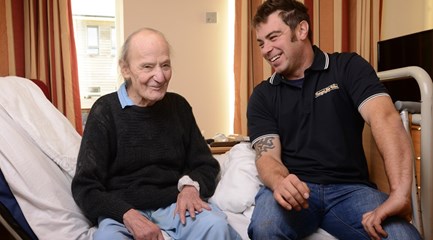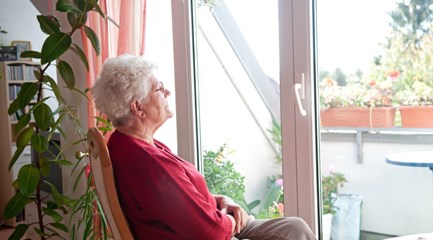On Older People's Day, we are asking people to check in on their older friends and relatives, and help them to live safely and independently in their own homes for longer.
Living an independent life in our own home is something valued by everyone, and becomes increasingly important in our older years. However, many older people are disproportionally at risk from electrical hazards in the home.
A person over 60 is ten times more likely to die in a fire than somebody aged 17 to 24. And more than half of the accidental fire-related deaths last year in Great Britain were people aged 65 and older.
Older people are also more likely to live in older houses, which have a higher chance of containing electrical hazards. Increasing energy bills and a reliance on older and potentially unsafe heating devices increase the risk.
Elsie's Story
Elsie, aged 86, had lived with her cat and her chicken in her South Devon home for about 35 years, In March this year, she had turned on the portable electrical heater in her bedroom to warm it up, went off to her garden, and came back to see smoke billowing from her bedroom door. The heater had been plugged into an extension lead, overloading the socket and causing the fire. Elsie's pets, her main concerns, were rescued from the fire. But very little else was salvaged.“Torquay is not an affluent area, a lot of unemployment, a lot of older people, so that was amazing,” says Debbie.
What can you do?
Electrical Safety First wants relatives and neighbours to ‘drop in’ and help keep their older friends safe by making a few simple checks:- Carry out visual checks to highlight electrical hazards that can be easily corrected and identify problems that should be referred to a registered electrician. Visit www.electricalsafetyfirst.org.uk/visualchecks to download our free smartphone app that guides you around the home.
- Make sure sockets are not overloaded. Most people use 4-way bar adaptors to increase the number of appliances that they can plug in. However, just because there is space to plug in four appliances, it does not mean it is safe to do so. Visit www.electricalsafetyfirst.org.uk/overloadingsockets to test the load on sockets.
- Portable heaters and electric blankets are popular solutions to rising heating costs. Make sure that heaters are not left unattended or switched on overnight and that blankets are checked for signs of wear and damage and always used according to manufacturer’s instructions.
More posts by Penny Walshe



